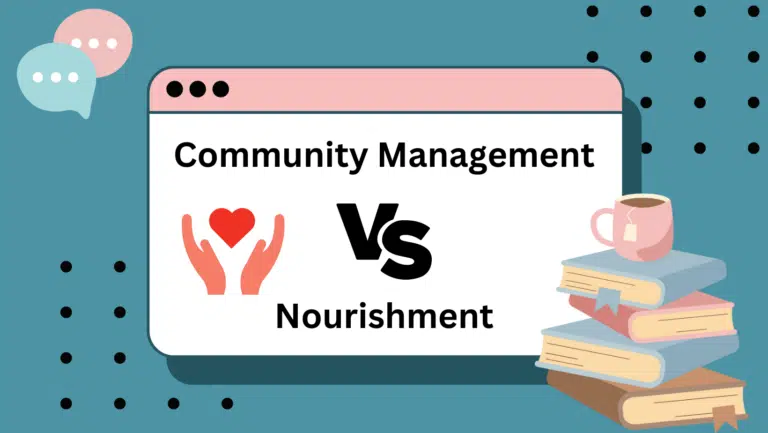As any search engine optimisation (SEO) expert will tell you, where you rank on a search engine and for what keywords or key phrases, directly correlates with the amount of traffic your website will receive and as such, the number of leads, conversions, and sales you will make.
Simply ‘having a website’ is not nearly enough in this advanced digital age of technology, you have to know how to use it, how to create excellent UX and how optimise your content to make it appeal to the search engine algorithms in order to get the maximum potential, value and ROI.
In this blog, we’ll outline the best steps to take to ensure your Google ranking is high and what you can do to help your business rank number one.
Although best practices for SEO are universal, they can vary depending on industry. For example, if you are in an industry sector that is highly saturated with big business or organisations, the likelihood of you ranking number on Google is low (think computer systems for example, or if your company sells a food or beverage product) which is where keywords and key phrases become vital. If your business is in a more competitive niche industry, especially if you provide a service to the local area, with correct SEO, you stand an excellent chance of being able to push up your Google rankings.
Content is king
If you have had any dealings with digital marketing, websites, or SEO, you may have heard this phrase numerous times. Cliché it may be, however, that doesn’t make it any less true, or any less relevant, particularly when it comes to Google. The Google algorithms love original content!
In Google’s most recent content algorithm update, they are focusing on a ‘people first’ approach. Which means that many SEO techniques historically used to appeal to a search engine, no longer have a positive effect on your ranking and can actually have negative consequences for your website, with sites deemed to have unhelpful content actually less likely to appear in search rankings.
These changes are designed to make it easier for the user to get high-value content related to their search query, enabling a better user experience, and making sure the correct websites will appear first, after all, that is precisely what the majority of the general public use Google for.
So, what guidelines should you be following to ensure you create original, relevant and high-value content that Google will approve of?
- Appeal to your target audience – make sure your content would be useful to your target market and answer any common queries and questions your intended audience would have. Making your content useful is a vital element of website content, both on your web pages themselves and any blog posts or insights.
- Knowledge and expertise – creating your content with a clear demonstration of how a product, service or industry works. This in-depth knowledge is not only likely to appeal to a user but the expertise on display is more likely to rank your content as high value to Google, improving your ranking for specific search queries.
- Specific focus – having generalised content will have negative connotations for your search ranking. It is better to focus your blog posts on specific product or service content, than trying to appeal to too broad a range of audiences.
- Help your user – Although posting blog posts is a common SEO tactic to provide updated content regularly and get you higher up a ranking, your blog posts need to be informative for the reader. If they have found your content, then a user will clearly have an end point in mind. Make sure you have answered their question, given them any required information and left them feeling satisfied. If they have to go to another website after yours, this will negatively affect your Google ranking. Don’t write for the sake of it, provide helpful content!
A common misconception about your content is length. Google themselves have said that word count has no effect on the algorithm, it is simply about the value of the content itself. Therefore, you may write a 2000-word blog post but if it is mostly fluff, then it will make zero difference to your ranking. Quality, not quantity is key to get you to the top.
Keywords/key phrases are…. well…key!
Your keywords or key phrases are the ones most often typed into Google by your target audience that are relevant to your business. Obviously, these will vary widely throughout industry sectors, so it is important to do your research on what your audience is looking for. This research will determine what keywords or key phrases need to be part of your content.
Placing keywords in your website content and using key phrases to form your blog titles and posts can help your potential customers a) find you and b) answer any queries they may have about the business you are in. Not only does this help build up trust that you are, in fact, the ideal place to go for a product or service but can help you Google identify your business as a high-value website for those specific keywords and as such, push you further up the rankings.
Placing specific keywords on your different website pages, URLs and meta titles and descriptions will make it easier for Google to crawl and index your pages, ensuring that you are a relevant website when your audience types in those keywords.
Location, location, location
In addition to using relevant keywords and key phrases, you should aim to input location-based keywords, such as “digital marketing agency Yorkshire” and geographical location references such as a city as part of your content. The aim of this is to make you rank higher for any location-based queries, after all, most people looking for a product or service are likely to put a local area to narrow down their search, and means you are more likely to appear in Google’s ‘near me’ search results.
User experience is everything
You can do everything right, including paid SEO and still not rank highly if your website offers a poor user experience. If a potential customer reaches your website and it is so bad, they cannot find the information they require or use it easily, then that key step linking a search to lead, or purchase, becomes redundant. Not only does this result in less conversions but will negatively affect your Google search rankings.
This has been reflected in a recent algorithm update by Google, which focuses on UX design rankings, so a poor UX design can negatively affect where you sit in the search rankings and a good user experience can push you further up the results.
Websites must be appealing to your target audience and above all, user friendly. A website with intuitive navigation, which can answer any questions or queries that a user may have typed into Google to reach your website, and that has clear call to actions will have a positive effect on the amount of traffic your websites receive. The more traffic you get through your website, especially if a visitor spends a longer time on it, will rank you higher, getting you more traffic, improving your ranking… until you make it to the top.
With our lives becoming digitised, many of us view the world through our mobile phones and tablets. This means in order for a website to be recognised as user friendly by Google, your website should have a responsive web design and be optimised for mobile devices. You may have a brilliantly designed website with excellent UX, and content written for people but if you can’t view it on a mobile device then not only are you likely to lose your audience, but you will fall foul of Google, who use mobile-first indexing to favour mobile-friendly websites.
Use the experts!
Although the steps outlined above can help you improve your Google ranking, best practice will always be to utilise the services of an SEO expert or digital marketing agency. Here at Click Through Digital, we understand the importance of designing and building a website to get the perfect blend of brand representation in your content, SEO and user experience.
This is the ideal combination to ensure Google ranks your website highly and will lead to higher numbers of traffic and conversions, however, it does take work! The knowledge and experience of experts can give you a better foundation for higher search rankings, along with the understanding of keywords and algorithms Google is known for. As there is no one ‘secret’ to becoming top of the first page on any search engine, using expert services can be a cost-effective solution and provide good ROI.
If you have a website but are worried about performance and its ranking, you can take advantage of our FREE website audit here at Click Through Digital. With just a few details, we can test to see how well your website is performing and email our report directly to you. No payment and no obligation.
If you are interested in any of our SEO services, including content writing, then please get in touch with us. We can help your business no matter the industry. Call us on 01609 590035 or email [email protected]


